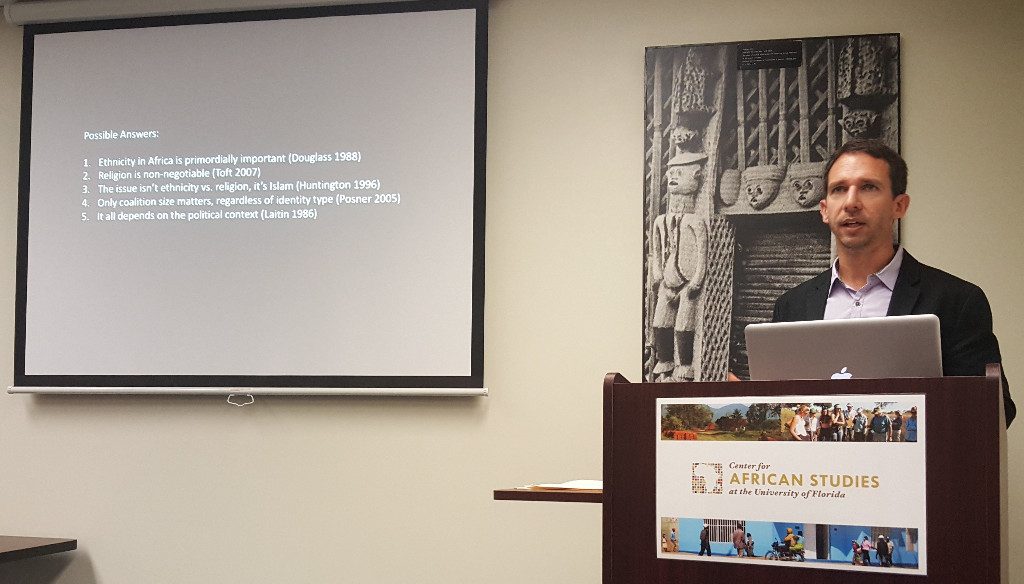 On Friday October 28th, John McCauley gave a Baraza presentation titled “Ethnicity and Religion as Sources of Political Division in Africa.” Dr. McCauley is Assistant Professor of Government & Politics at the University of Maryland – College Park. The talk presented an experimental design to test whether ethnicity or religion create greater social and political divisions in Africa.
On Friday October 28th, John McCauley gave a Baraza presentation titled “Ethnicity and Religion as Sources of Political Division in Africa.” Dr. McCauley is Assistant Professor of Government & Politics at the University of Maryland – College Park. The talk presented an experimental design to test whether ethnicity or religion create greater social and political divisions in Africa.
McCauley’s experimental design involved four field sites in Cote d’Ivoire and Ghana in order to operationalize variation across three variables: ethnicity, religion, and national identity. McCauley’s research employed a ‘dictator’s game’, commonly used in behavioral economics. In it, respondents listen to one of three treatment scripts: (1) one which emphasizes ethnicity, (2) the exact same script which instead emphasizes religion, or (3) a third script which emphasizes neither. Then respondents are paired with an ‘anonymous’ partner who is of the same gender but with manipulated ethnic and/or religious backgrounds, and told that they can give any portion (from zero to all) of a pot of money they just earned to their partner.
Three general conclusions result. First, the results suggest a greater affinity for in-group members, whether ethnic or religious, over out-group members. Second, Muslim respondents did not behave differently from non-Muslim respondents (i.e. Muslims and non-Muslims were just as likely to give more to the in-group than out-group). Finally, and most striking, Cote d’Ivoire has an extreme amount of difference between in-group and out-group partners, for both ethnic and religion groups, as compared to Ghana. McCauley concludes that the political context is highly determinative of this result, citing politicians’ emphasis on ethnic and religious differences during the 2002-2011 conflict in Cote d’Ivoire.